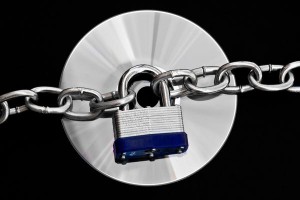Remix
The Objectives:
- Become acquainted with copyright as a historic, cultural and economic paradigm and its value and pertinence to creative works.
- Explore the changing nature of copyright in the context of “Remix Culture” and the “Fifth World”
- Examine their own and others values and paradigms of ownership and authorship of cultural media.
- Evaluate the meanings of real and fake and examine their intersection with personal and cultural identity and authenticity
Artifact (original post link):
In the beginning of the video, “Laws That Choke Creativity” by Lawrence Lessig from TED talk, he started by talking about the chicken farmers and the flight “trespassing” the properties of farmers. With this story, he started talking about read-write culture, which everyone participate in creation of culture, and read-only culture, which there is separation between consumers and creators of cultures. Read-only preserved until before the outbreak of the internet. After the internet, everyone became a creator of culture through the internet including using others’ work to create new things. Using others might cause the act of piracy and breaking copyright laws and even the intellectual property law in a broader sense. Lawrence is one that is against the piracy but he wants the laws to be more sensible. I think this is a controversial issue. Being sensible is not an easy work to be done. There is someone who literally wants to create new things based on others, but also there is someone who steals others and makes money off from those work.
Reflection:
I was appreciated while watching the video “Laws that Choke Creativity” by Lawrence Lessig from TED.com. As the world gets closely connected throughout the internet, everyone can have access to everything so easily. The internet made everyone become much convenient. I think this is somewhat related to the technology discussion, where the new materials are almost always based on the original. Since there are many things out there on the internet, people can use the available information and they create newer technology or culture based on the information. If we only think about the evolution of technology and culture, this is extremely useful; however, there are some issues that Lawrence Lessig pointed out.
The issues that Lessig brought up always will be controversial. Just like I described above, it will be always useful only if we focus on the evolution; however, there are some that do not focus on the evolution, but the money. Based on the available information, they make the money although the materials are legally protected such as under copyright laws. This is two-edged sword. When we try to protect the work someone has done it first, we have to give up some parts of the creation of new materials based on the available information on the internet. On the other hand, we should give up the protection of the works out there to have new creations.
Future Goals:
I would appreciate the works that have been done by others and use them within the range of laws. I used to download law-protected materials illegally although I knew that it is not right. From now on, I would act in a range of law and support the work that people put lots of efforts on and new creations. I know there is no right answer to resolve the issues, but I would help them to make it better.
Click here for the YouTube video link for the tutorial of fair use and copyright.
Previous Page:Technology
Next Page:Public Art